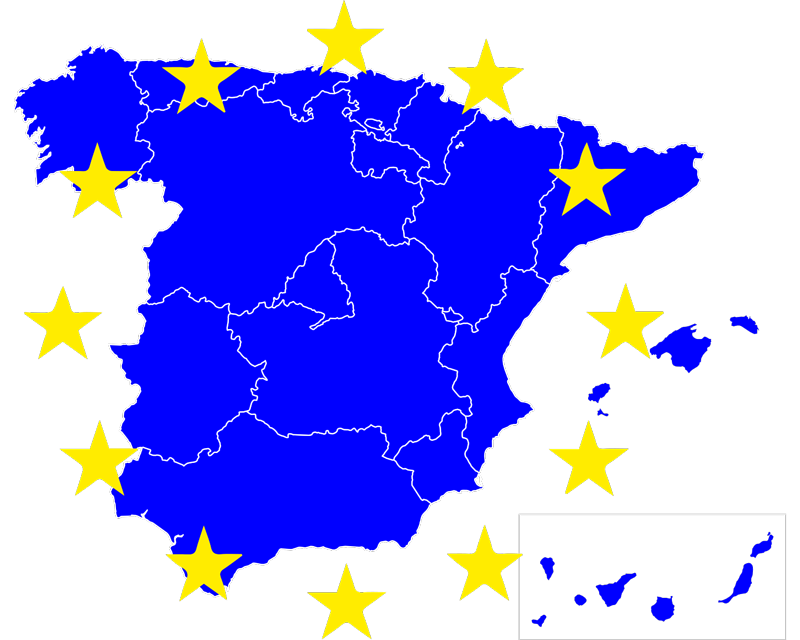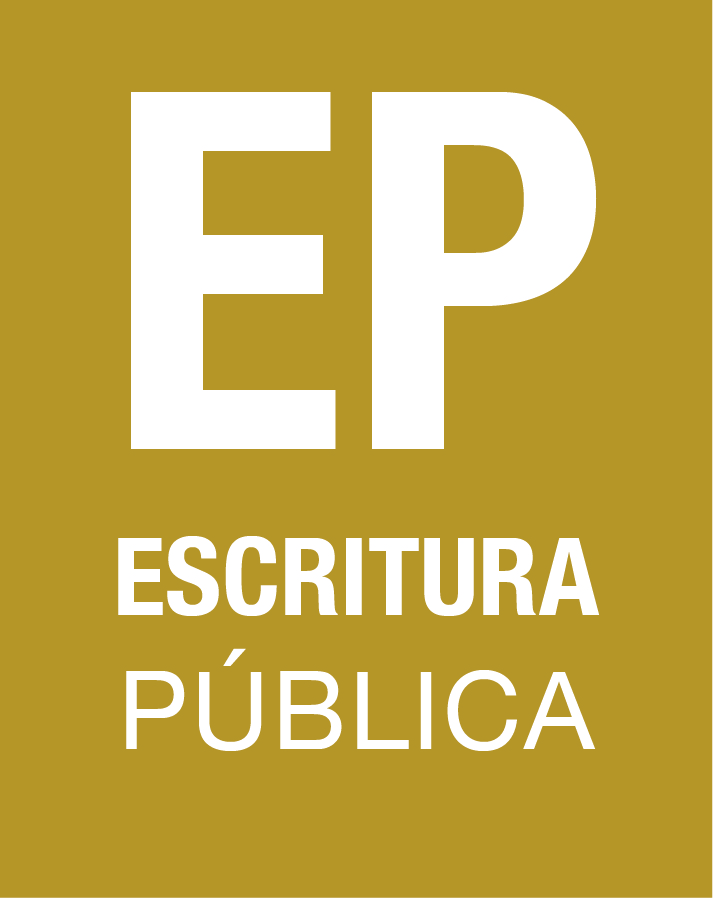EN EL ESCAPARATE
UNA EUROPA MÁS VERDE, DIGITAL Y SOCIAL
A GREENER, MORE DIGITAL AND SOCIAL EUROPE
FERNANDO GEIJO
- Twitter: @fergeijo
- Mail: [email protected]
Alcanzar un pacto en materia energética y de inmigración son otras claves de la Presidencia.
Achieving an agreement on energy and immigration would be other key aspects of the Presidency.
España ocupará en el segundo semestre de 2023 la presidencia del Consejo de la Unión Europea. Una responsabilidad que ya ejerció en cuatro ocasiones anteriores y que supone una oportunidad única para asumir un relevante rol como Estado miembro y dar continuidad a los trabajos de las instituciones europeas. La hoja de ruta española tendrá a la inmigración, la energía y América Latina como puntos fuertes de su actuación, sin dejar de lado los pilares fundamentales de la UE en torno a la ecología, la tecnología y la protección social.
Un segundo objetivo será dejar huella en el tablero estratégico en que se mueven los 27 países que conforman la UE y, por ende, tratar de incrementar la influencia política española en Bruselas. Y todo ello en medio de la convocatoria de elecciones generales en nuestro país, previstas para finales del presente año, además de la cita electoral para que 501 millones de ciudadanos renueven los 705 miembros del Parlamento europeo, fijada para mayo/junio de 2024, con el consiguiente nombramiento posterior de una nueva Comisión.
Tres en uno
El Tratado de Lisboa, firmado en 2007 y en vigor desde 2009, estableció la costumbre de asignar un plazo de 18 meses para la presidencia rotatoria compartido por un trío de Estados miembros. Se trata de completar las presidencias semestrales por turnos de seis meses, que se producen desde 1958, e hilvanar sus políticas con los otros dos países que conforman cada terna respectivo. El objetivo es dar una mayor continuidad a los trabajos realizados en ese lapso de tiempo propuesto. En estos momentos, Suecia es el país que ejerce la presidencia del Consejo de la Unión Europea, como tramo final del conjunto de tres que conforma con Francia y la República Checa, mientras que España inaugurará el suyo en julio, que será completado sucesivamente por Bélgica y Hungría a lo largo de 2024.
La colaboración entre los países que integran cada respectivo trío debe estar, como es lógico, previa y convenientemente coordinada, organizada y consensuada entre ellos, al modo en que lo harían los corredores por relevos de un equipo de atletismo de élite que se precie. En el caso español, no sólo va a prestar formación específica a alrededor de 1.000 funcionarios públicos para que afronten con garantías la gestión de estos intensos meses, sino que ha puesto en marcha un Comité Organizador ad hoc.
Asimismo, es preciso que todo este engranaje administrativo de distintos Estados organizados en oleadas de sucesivas ternas tenga presente que las propuestas integradas en su propio programa de actuación, tanto conjunto como específico de cada país, deben estar alineadas y, por consiguiente, encajar con las líneas políticas emanadas desde Bruselas, a saber: el fomento de la transición ecológica hacia una economía verde en su lucha contra el cambio climático y a favor de la biodiversidad; la transformación digital de la sociedad; la agenda social con el foco puesto en el Pilar Europeo de Derechos Sociales y su respectivo Plan de Acción, y el desarrollo de las interconexiones y la correspondiente reforma del mercado energético, así como la revisión de los planes de recuperación y resiliencia, y el fomento de la colaboración con regiones de importancia para la UE, como son América Latina y el Sur del Mediterráneo.
EL 1 DE JULIO DE 2023 MARCARÁ EL PISTOLETAZO DE SALIDA DE LA PRESIDENCIA ESPAÑOLA DEL CONSEJO DE LA UNIÓN EUROPEA
Deberes a la vista
Entre las obligaciones de la presidencia de turno se encuentra la planificación y dirección de las sesiones de nueve de las diez formaciones que integran el Consejo, excepto la relativa a Asuntos Exteriores, que sigue siendo responsabilidad exclusiva del Alto Representante de la UE para Asuntos Exteriores y Política de Seguridad, cargo que ejerce el español Josep Borrell desde su nombramiento en 2019, además del de Vicepresidente de la Comisión Europea. También debe impulsar las reuniones de sus órganos preparatorios y del Comité de Representantes Permanentes (Coreper), así como de la mayoría de los grupos de trabajo que ya están en marcha, sin descuidar la representación del Consejo ante el resto de instituciones de la UE.
Las tareas del país anfitrión de la presidencia semestral de turno deben, asimismo, centrarse en el fomento del trabajo legislativo mediante la culminación de las negociaciones en curso de los expedientes abiertos en torno a las grandes líneas de trabajo de la Unión Europea, entre las que destacan la transición ecológica, la transformación digital y la agenda social. Sin descuidar impulsar la cooperación entre los países miembros a través de una intermediación que pueda calificarse como imparcial. Y todo ello con la necesaria flexibilidad y cintura para que el aparato burocrático responda de manera eficiente a las diferentes crisis que puedan surgir sobre la marcha en el ciclo europeo semestral en cuestión.
Sin cabos sueltos
Sin embargo, cada Estado miembro tiene la potestad de señalar, dentro siempre de la panoplia europea, los ámbitos en los que prefiere que se concentre la atención bajo su presidencia. Para ello, presenta un Programa específico ante el Consejo de Asuntos Generales, que en el caso de España está previsto que lo haga en junio de 2023.
En el bosquejo del mismo, el ministro de Asuntos Exteriores, Unión Europea y Cooperación, José Manuel Albares, ya adelantó en septiembre pasado a los embajadores europeos de la UE en nuestro país los ejes fundamentales que guiarán la acción de la Presidencia española.
En la reunión con los mismos, el titular de Exteriores remarcó la necesidad de robustecer la unidad de Europa frente a la volatilidad y complejidad del actual contexto internacional, con Ucrania y la inflación en mente. Asimismo, recordó que el programa de trabajo impulsado por España estará vinculado a reforzar los ejes verde, social y digital que ya marcan la hoja de ruta paneuropea, al tiempo que subrayó la oportunidad que para la Presidencia española supondrá seguir incrementando las relaciones con dos regiones clave para el Viejo Continente, como son América Latina y la Vecindad Sur del Mediterráneo, con las cumbres previstas con ambos bloques en Bruselas y Barcelona, respectivamente, en el segundo semestre de 2023.
Por tierra, mar y aire
25 ciudades españolas acogerán a lo largo del semestre algún tipo de reunión o acto en relación con la Presidencia española del Consejo de la UE. En concreto, está previsto que se celebren reuniones de alto nivel repartidas en las diecisiete comunidades españolas.
Diferentes localidades situadas en Castilla-La Mancha, Castilla y León, Galicia y el País Vasco albergarán dos reuniones de alto nivel, mientras que Cataluña será la anfitriona de tres. Andalucía será la clara ganadora de esta pedrea diplomática al aglutinar otros tres encuentros y sumar, además, el premio gordo con la sede en la Alhambra de Granada de la cumbre informal de jefes de Estado y de Gobierno.
En total, serán alrededor de 2.000 reuniones las que habrá que organizar entre Bruselas y Luxemburgo, a las que hay que añadir más de 200 en territorio español, 22 de ellas de carácter ministerial, para lo que se contará con un presupuesto que podría rondar los 100 millones de euros, una cifra situada entre los 40-60 millones de las presidencias checa y portuguesa y los 140 millones de coste de la francesa.
De entre todas ellas, sin duda destacan dos citas marcadas en rojo en la agenda de la Presidencia. Por un lado, la cumbre en Granada de los 27 jefes de Estado y Gobierno de la UE con los 33 de la CELAC (Comunidad de Estados de América Latina y el Caribe), con el bloqueo del acuerdo de asociación entre la UE y Mercosur (formado por Argentina, Bolivia, Brasil, Paraguay, Uruguay y Venezuela) en el punto de mira y con la próxima Cumbre Iberoamericana en marzo en República Dominicana como antesala y, por otro, coincidiendo con el día del Mediterráneo el 28 de noviembre, tendrá lugar en Barcelona el encuentro de ministros de Exteriores de la UE con sus homólogos de Argelia, Egipto, Israel, Jordania, Líbano, Libia, Marruecos, Palestina y Túnez.
EL PROGRAMA DE TRABAJO IMPULSADO POR ESPAÑA ESTARÁ VINCULADO A REFORZAR LOS EJES VERDE, SOCIAL Y DIGITAL QUE YA MARCAN LA HOJA DE RUTA PANEUROPEA
Responsabilidad compartida
Como en cualquier comunidad de vecinos que se precie, la Presidencia rotativa acaba recayendo en todos los Estados miembros cuando les llega su momento. Además, al organizar los turnos se pretende que en los tríos que ejercerán la Presidencia en períodos conjuntos de 18 meses se combinen países grandes con pequeños, veteranos con noveles y que haya un cierto balance cronológico entre Estados situados en el Norte y el Sur de Europa.
Asimismo, cabe destacar que la Presidencia del Consejo de la UE va más allá de las meras reuniones de trabajo y, a la postre, implica tanto a la Administración General del Estado como a las comunidades autónomas y a los ayuntamientos, sin olvidar a la propia sociedad civil. No en vano, está previsto que se organicen actividades culturales de diversa índole por toda la geografía española a lo largo del semestre.
25 CIUDADES ESPAÑOLAS ACOGERÁN A LO LARGO DEL SEMESTRE ALGÚN TIPO DE REUNIÓN O ACTO EN RELACIÓN CON LA PRESIDENCIA ESPAÑOLA DEL CONSEJO DE LA UE
Aparte de los objetivos específicos esgrimidos, a partir de julio de 2023 España presidirá una Europa que ya ha debatido, con una amplia participación ciudadana, un nuevo contrato social emanado de los resultados obtenidos en la Conferencia sobre el futuro de Europa, en relación con la defensa de la libertad de expresión, la democracia, los derechos humanos y la lucha contra la pobreza, entre otros asuntos. Un punto de partida que no se puede obviar y que supone la auténtica columna vertebral sobre la que construir las políticas del futuro en la Unión Europea.

There will be around 2,000 meetings to be organised between Brussels and Luxembourg, with more than 200 further gatherings in Spain.
Spain will hold the presidency of the Council of the European Union in the second half of 2023. This responsibility has already been exercised on four previous occasions and represents a unique opportunity to assume an important role as a Member State and to continue the work of the European institutions. The Spanish roadmap will place emphasis on immigration, energy and Latin America in its proceedings, without overlooking the key EU pillars of ecology, technology and social protection.

A second objective will be to make an impression on the strategic stage on which the 27 countries that make up the EU operate, thereby aiming to increase Spanish political influence in Brussels. This comes amid the calling of a general election in Spain, scheduled for the end of this year, alongside a date with the ballot box for 501 million citizens to re-elect the 705 members of the European Parliament, set for May/June 2024, resulting in the subsequent appointment of a new Commission.
Three in one
The Lisbon Treaty, signed in 2007 and in force since 2009, established the custom of allocating an 18-month period for the rotating presidency, shared by a trio of Member States. This involves supplementing the half-yearly presidencies of six-month shifts, which have taken place since 1958, linking policies together with the other two countries holding each of the three terms. The aim is to give greater continuity to the work carried out within this proposed timeframe. Sweden is currently the country holding the presidency of the Council of the European Union, as the final leg of the group of three comprising France and the Czech Republic, while Spain will open its own in July, to be completed successively by Belgium and Hungary over the course of 2024.
Collaboration among the countries that make up each respective trio must, of course, be appropriately coordinated in advance, organised and agreed among them, just as the relay runners of a prized elite athletics team would do. In the case of Spain, not only will specific training be given to around 1,000 public officials so as assuredly to handle the management of these intense months, but an ad hoc Organising Committee has also been set up.
All this administrative gearing of the different States, organised into waves of successive terms, must also bear in mind that the proposals integrated within their own programme of action, both joint and country-specific, must be aligned and hence consistent with the political lines emanating from Brussels, namely: the promotion of the ecological transition towards a green economy in the fight against climate change and in favour of biodiversity; the digital transformation of society; the social agenda, focusing on the European Pillar of Social Rights and its respective Action Plan; the development of interconnections and the corresponding reform of the energy market, as well as the revision of recovery and resilience plans, and the promotion of collaboration with regions of importance for the EU, such as Latin America and the Southern Mediterranean.
1 JULY 2023 WILL MARK THE START OF THE SPANISH PRESIDENCY OF THE COUNCIL OF THE EUROPEAN UNION
Duties in view
The duties during the presidency include the planning and management of the sessions of nine of the ten Council formations, excluding Foreign Affairs, which remains the exclusive responsibility of the EU High Representative for Foreign Affairs and Security Policy, a position held by Spain’s Josep Borrell since his appointment in 2019, in addition to the Vice-President of the European Commission. Meetings of the preparatory bodies and the Committee of Permanent Representatives (COREPER) must also be advanced, as well as of most of the working groups already in place, without neglecting the representation of the Council before the other EU institutions.
The tasks of the host country of the rotating six-month presidency also require a focus on promoting legislative work by completing the ongoing negotiations on the open dossiers regarding the European Union’s main lines of work, including the green transition, digital transformation and social agenda. Without overlooking the promotion of cooperation among member countries, by acting as a properly impartial intermediary. All of which must be combined with the necessary flexibility and finesse to ensure that the bureaucratic apparatus responds efficiently to the various crises that might arise over the course of the six-month European cycle in question.
No loose ends
However, each Member State is empowered, albeit within the confines of Europe’s policy spectrum, to highlight those areas on which it prefers to focus attention under its presidency. To this end, it presents a specific programme to the General Affairs Council, which Spain in this case is scheduled to do in June 2023.
In the draft version, the Minister for Foreign Affairs, the European Union and Cooperation, José Manuel Albares, last September revealed to the European ambassadors of the EU in Spain the core strands that will steer the action of the Spanish Presidency.
At the meeting with them, the Foreign Minister stressed the need to strengthen European unity in the face of the volatility and complexity of the current international context, with Ukraine and inflation in mind. He also recalled that the working programme promoted by Spain will be linked to strengthening the green, social and digital strands that already mark the pan-European roadmap, while stressing the opportunity for the Spanish Presidency to continue increasing relations with two regions that are of key importance to the continent, namely Latin America and the Southern Neighbourhood of the Mediterranean, summits with the two blocs having been planned in Brussels and Barcelona, respectively, in the second half of 2023.
By sea and by air
25 Spanish cities will during the six months host some kind of meeting or event in connection with the Spanish Presidency of the Council of the EU. In particular, high-level meetings are scheduled to be held in seventeen of Spain’s autonomous regions.
Different locations in Castile-La Mancha, Castile-Leon, Galicia and the Basque Country will host two high-level meetings, while Catalonia will host three. Andalusia will be the clear winner of this diplomatic jamboree, claiming a further three meetings as well as the star prize, with the Alhambra in Granada hosting the informal summit of Heads of State and Government.
In all there will be around 2,000 meetings to be organised between Brussels and Luxembourg, with more than 200 further gatherings in Spain, 22 of them ministerial, with a budget of around 100 million euros, a figure lying somewhere between the 40-60 million of the Czech and Portuguese presidencies, and the 140 million spent by the French.
Among all these, there are undoubtedly two dates marked in red on the Presidency’s agenda. First of all, the summit in Granada of the 27 Heads of State and Government of the EU with the 33 of the CELAC (Community of Latin American and Caribbean States), with the stalemate of the association agreement between the EU and Mercosur (comprising Argentina, Bolivia, Brazil, Paraguay, Uruguay and Venezuela) in the spotlight, and with the forthcoming Ibero-American Summit in March in the Dominican Republic serving as the precursor. And secondly, coinciding with the Day of the Mediterranean on 28 November, the meeting of EU foreign ministers with their counterparts from Algeria, Egypt, Israel, Jordan, Lebanon, Libya, Morocco, Palestine and Tunisia will take place in Barcelona.
THE WORKING PROGRAMME PROMOTED BY SPAIN WILL BE LINKED TO STRENGTHENING THE GREEN,SOCIAL AND DIGITAL STRANDS THAT ALREADY MARK THE PAN-EUROPEAN ROADMAP
Shared responsibility
As in any neighbourhood association, the rotating Presidency ends up falling to each of the Member States when their time comes. Furthermore, when the terms are scheduled, the aim is that the trio holding the presidency for the overall period of 18 months should combine large and small countries, veterans with newcomers, and that there should be a certain chronological balance between states located in the north and south of Europe.
It should also be noted that the Presidency of the Council of the EU goes beyond mere working meetings, and ultimately involves both central government and the autonomous regions and local authorities, not forgetting civil society itself. It is no coincidence that cultural activities of various kinds are planned throughout Spain over the course of the six months.
25 SPANISH CITIES WILL DURING THE SIX MONTHS HOST SOME KIND OF MEETING OR EVENT IN CONNECTION WITH THE SPANISH PRESIDENCY OF THE COUNCIL OF THE EU
In addition to the specific objectives set out, from July 2023 Spain will preside over a Europe that has already discussed, with extensive citizen participation, a new social contract derived from the results obtained at the Conference on the Future of Europe, with regard to the defence of freedom of expression, democracy, human rights and the fight against poverty, among other matters. A starting point that cannot be ignored, and which represents the real backbone on which to build the policies of the future within the European Union.
Seis meses de frenética actividad
El sábado 1 de julio de 2023 marcará el pistoletazo de salida de la presidencia española del Consejo europeo. Un órgano decisorio esencial en el funcionamiento de la Unión Europea. Por delante esperan un total de 184 días distribuidos entre los últimos seis meses del año, a pesar de que agosto se considera inhábil en términos comunitarios, para lograr alcanzar un acuerdo en materia de asilo e inmigración, progresar en la consecución de un mercado único de la energía y, finalmente, estrechar las relaciones de la Unión con Latinoamérica y los vecinos de la orilla Sur del Mediterráneo. Al menos esos serían los grandes objetivos que, a priori, se ha marcado el Gobierno español en su presidencia de turno de la UE.
España ya ejerció esta presidencia en los primeros semestres de 1989, 2002 y 2010, así como en el segundo de 1995, bajo los gobiernos de Felipe González, en dos ocasiones, José María Aznar y José Luis Rodríguez Zapatero. Un auténtico escaparate de proyección internacional.
Six months of frenetic activity
Saturday, 1 July 2023, will mark the start of the Spanish presidency of the European Council. An essential decision-making body in the functioning of the European Union. Ahead will lie a total of 184 days spread over the last six months of the year, despite August not being considered working days for EU business, in order to reach an agreement on asylum and immigration, progress towards creating a single energy market, and lastly to strengthen the Union’s relations with Latin America and its neighbours on the southern shore of the Mediterranean. At least these would be the major objectives defined in principle by the Spanish Government for its term of the presidency of the EU.
Spain previously held this presidency in the first half of 1989, 2002 and 2010, and in the second half of 1995, under the governments of Felipe González, on two occasions, José María Aznar, and José Luis Rodríguez Zapatero. A genuine opportunity to claim the international limelight.
PARA SABER MÁS / FOR FURTHER INFO
La Presidencia del Consejo de la UE. Consejo de la Unión Europea.
The Presidency of the Council of the EU. Council of the European Union.
Hablamos de Europa, portal de asuntos europeos de la Secretaría de Estado para la Unión Europea. Ministerio de Asuntos Exteriores, Unión Europea y Cooperación.
Hablamos de Europa, the European affairs portal of the Department for the European Union. Ministry of Foreign Affairs, European Union and Cooperation.
Comparecencia íntegra del ministro de Asuntos Exteriores, Unión Europea y Cooperación en el Congreso de los Diputados en el marco de la Comisión Mixta para la UE (5 de septiembre de 2022).
Full address to the Congress of Deputies by the Minister for Foreign Affairs, the European Union and Cooperation, within the framework of the Joint Committee for the EU (5 September 2022).
Decisión (UE) 2016/1316 del Consejo de 26 de julio de 2016 que modifica la Decisión 2009/908/UE, por la que se establecen las normas de desarrollo relativas al ejercicio de la Presidencia del Consejo y de la presidencia de los órganos preparatorios del Consejo.
Council Decision (EU) 2016/1316 of 26 July 2016 amending Decision 2009/908/EU laying down detailed rules for the exercise of the Presidency of the Council and the
Presidency of the Council’s preparatory
bodies.
ARQUITECTURA DE UN SEMESTRE
Entre los organismos responsables de coordinar de forma adecuada el aluvión de actos que están previstos a lo largo de los últimos seis meses de 2023, destacan las siguientes estructuras administrativas:
- Creación del Comité Organizador de la Presidencia española que, bajo la dirección del Ministro de Exteriores, se encargará de posibilitar la necesaria coordinación interdepartamental, al estar integrado por representantes de todos los ministerios implicados en los diferentes actos y eventos.
- La Secretaría General para la Unión Europea que, en estrecho contacto tanto con las embajadas españolas en los países de la UE como con la Oficina de Representación Permanente de nuestro país (que verá incrementada exponencialmente su actividad), se ocupa de la identificación de contenidos, fijación de posiciones y seguimiento de expedientes en activa coordinación con todos los Ministerios implicados en esta labor.
- La Oficina de Coordinación para la Presidencia española de la UE, que tiene la responsabilidad de planificar e impulsar todas las iniciativas relacionadas con los diferentes actos incluidos en la presidencia.
FRAMEWORK FOR HALF A YEAR
The bodies responsible for properly coordinating the panoply of events planned over the course of the closing six months of 2023 include the following administrative structures:
- Creation of the Organising Committee of the Spanish Presidency which, under the direction of the Foreign Minister, will be responsible for enabling the necessary cross-departmental coordination, comprising as it does representatives of all the ministries involved in the different ceremonies and events.
- The Secretary-General for the European Union, in close contact with both the Spanish embassies in EU countries and the Permanent Representation of Spain (which will see an exponential increase in its activity), is responsible for identifying content, establishing positions and monitoring casework in active coordination with all the Ministries involved in this task.
- The Coordination Office for the Spanish Presidency of the EU, which has responsibility for planning and promoting all initiatives related to the different events included within the presidency.
NOBLESSE OBLIGUE
Entre las funciones que se espera que realice de manera diligente un Estado miembro a la hora de ejercer la presidencia de turno del Consejo se encuentran:
- Organización para presidir y planear las reuniones, oficiales o informales, desarrolladas en Bruselas o en el país anfitrión, tanto al máximo nivel, con la representación de jefes de Estado y de Gobierno, como en el ámbito ministerial y/o funcionarial de seguimiento de los distintos grupos de trabajo.
- Negociación en nombre del Consejo, con el resto de instituciones de la UE, mediante reuniones del denominado Comité de Conciliación o bien por medio de diálogos tripartitos o encuentros informales.
- Representación ante el propio Consejo y el Parlamento Europeo de cara a facilitar la consecución de acuerdos en torno a expedientes legislativos en marcha, además de la participación externa en las cumbres de la UE con terceros Estados.
NOBLESSE OBLIGE
The tasks which a Member State is expected to carry out diligently when holding the rotating Council presidency include:
- Organisation to chair and plan meetings, whether official or informal, conducted in Brussels or in the host country, both at the highest level, with the representation of Heads of State and Government, and at the ministerial and/or official level to follow up the different working groups.
- Negotiation on behalf of the Council with the other EU institutions, through meetings of what is known as the Conciliation Committee, or through three-way discussions or informal meetings.
- Representation before the Council itself and the European Parliament with a view to facilitating agreements on ongoing legislative casework, as well as external participation at EU summits with third countries.



